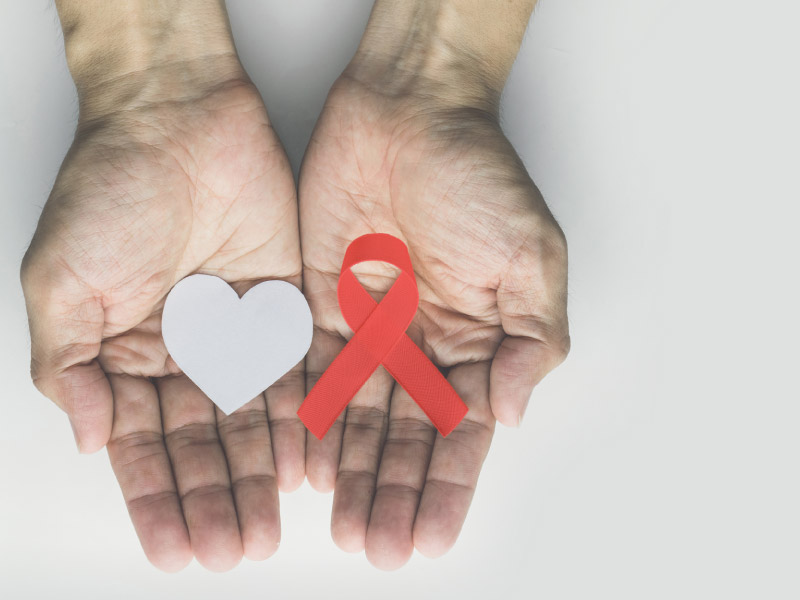Sudden cardiac death risk higher among people living with HIV
By American Heart Association News

Sudden cardiac death – which occurs minutes after the heart suddenly stops beating – is far more likely to strike people living with HIV, especially if their condition isn't well-controlled or if they have other heart disease risk factors, according to a national study of U.S. veterans.
Researchers analyzed medical records for more than 144,000 veterans across the country, 30% of whom had human immunodeficiency virus, or HIV. Those with high viral loads of HIV had a 57%-70% higher risk of sudden cardiac death than those without HIV. The research was published Wednesday in the Journal of the American Heart Association.
"People living with HIV are already known to have a higher risk of heart attack, stroke, heart failure, blood clots in the lungs and peripheral artery disease," lead study author Dr. Matthew Freiberg said in a news release. He is the Dorothy and Laurence Grossman Chair in Cardiology and a professor of medicine at Vanderbilt University School of Medicine in Nashville, Tennessee.
"We know that among people with HIV, those who have a compromised immune system, for example a low total CD4+ T-cell count, they seem to have a higher risk of cardiovascular disease than those who have high CD4+ T-cell counts," Freiberg said. "It is unclear if a compromised immune system is a risk factor for sudden cardiac death."
Analyzing national data from the Veterans Aging Cohort Study, researchers built upon a previous, smaller study that showed the rate for sudden cardiac death was four times higher in people with HIV than those without. This new study found a 14% overall higher risk for sudden cardiac death among people with HIV. It was 57% higher in people whose blood tests showed low levels of CD4+ T cells over time, an indicator that HIV was progressing and the immune system was compromised. Those who had low viral loads of HIV or healthy levels of infection-fighting CD4+ T cells had no increased risk for sudden cardiac death.
Regardless of whether a veteran was infected with HIV, the risk for sudden cardiac death grew with each additional risk factor, such as high blood pressure, smoking, hepatitis C infection, anemia, alcohol dependence or abuse, and chronic obstructive pulmonary disease.
"Addressing risk factors related to both cardiovascular disease and HIV is essential to prevent the higher rates of sudden cardiac death in people with HIV," senior study author Dr. Zian Tseng said in the release. He is the Murray Davis Endowed Professor in the Cardiology Division and Cardiac Electrophysiology Service at the University of California, San Francisco.
When treating people with HIV, "clinicians should consider screening for specific warning signs of sudden cardiac death such as fainting or heart palpitations," Tseng said. "And, if indicated, clinicians should request additional testing such as echocardiograms or continuous rhythm monitoring."
If you have questions or comments about this story, please email [email protected].





